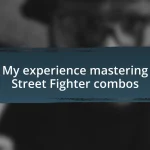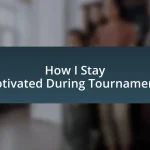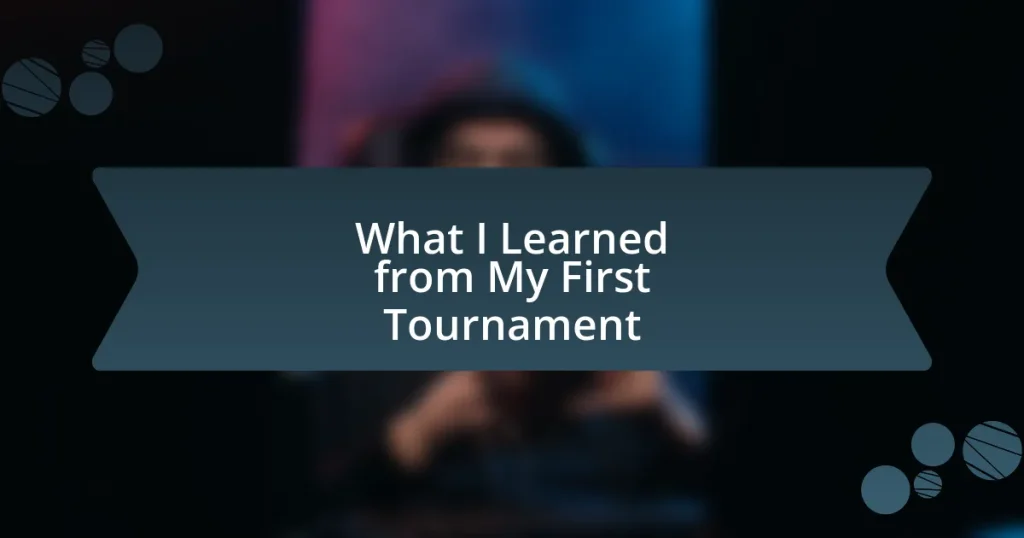Key takeaways:
- The blend of competition and camaraderie among participants enhances the tournament experience beyond just winning.
- Preparation, including mental visualization and equipment checks, significantly impacts performance and confidence.
- Emotional regulation and learning from failures are crucial for improving future performances in competitions.
- Setting both short-term and long-term goals helps maintain motivation and align training with aspirations for growth.
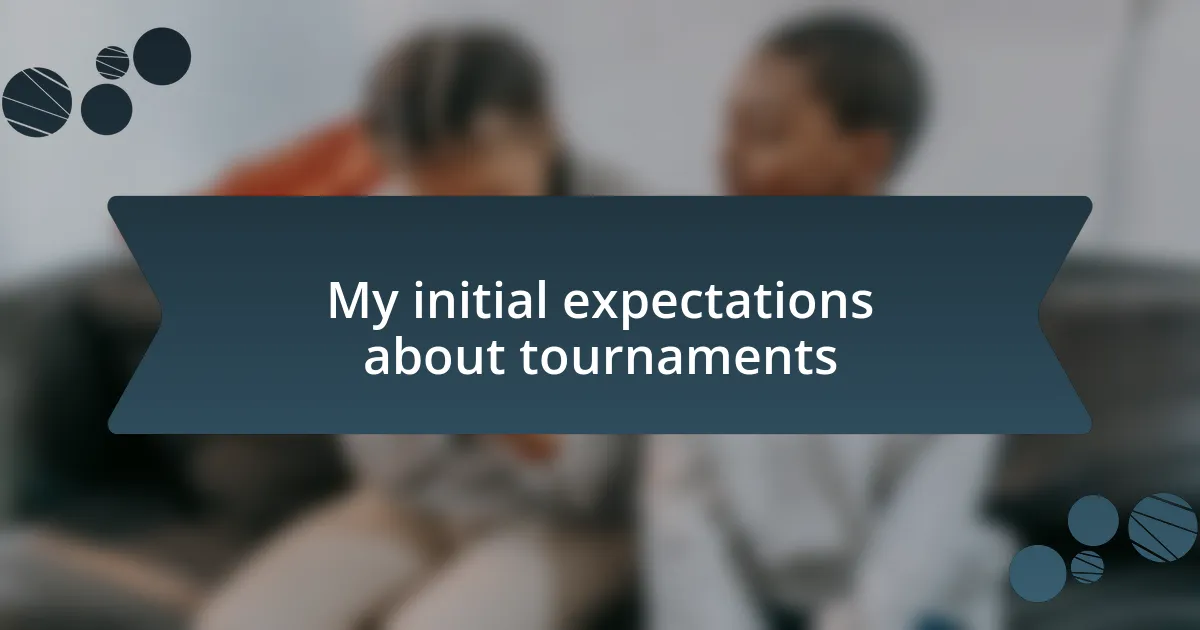
My initial expectations about tournaments
When I first thought about tournaments, I imagined a grand spectacle filled with intense competition and electric energy. The excitement was palpable, but I also felt an underlying anxiety. Would I measure up to the other participants? This blend of anticipation and doubt created a whirlwind of emotions within me.
I expected the atmosphere to be fierce but also exhilarating, like stepping onto a battlefield where every moment mattered. However, I soon realized that it wasn’t just about winning. The camaraderie among participants surprised me, as we shared tips and encouragement, transforming what I thought would be a lone journey into a collective experience. What would it be like if every competitor supported one another?
Initially, I envisioned a straightforward path focused solely on performance metrics. Yet, I discovered that personal growth was just as crucial. I learned so much about my weaknesses and strengths, which taught me invaluable lessons that extended beyond the tournament itself. Had I underestimated the importance of this self-discovery amid the competitive atmosphere?
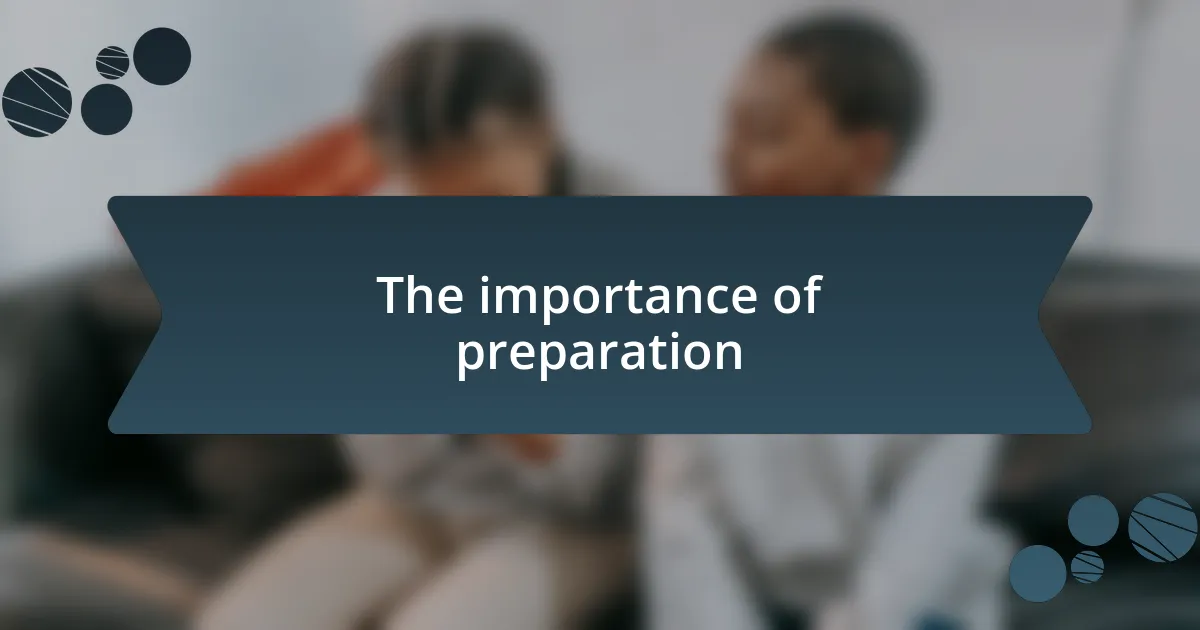
The importance of preparation
Preparation is often the unsung hero of tournament success. I vividly remember my first attempt, where I assumed I could wing it based on my skills alone. The reality hit hard when I faced opponents who had meticulously planned their strategies and practices. That stark contrast taught me that preparation can define the outcome far more than raw talent.
Reflecting on my experience, I learned that mental preparation is just as important as physical training. Before the tournament, I spent hours visualizing my performance and running through potential scenarios in my mind. This mental workout not only built my confidence but also enhanced my adaptability during the competition. Suddenly, the moment I entered the arena felt less daunting because I had rehearsed it in my mind countless times.
I found that preparation spills over into various aspects of the tournament experience. From researching my opponents to ensuring I had the right gear, every detail mattered. I recall checking my equipment multiple times the night before, driven by the fear of failure. This attention to detail brought a sense of calmness that allowed me to focus on the competition rather than worry about what I might have overlooked. The assurance that I had prepared properly was a silent strength I could lean on during those challenging moments.
| Type of Preparation | Impact on My Experience |
|---|---|
| Physical Training | Enabled me to compete confidently, enhancing my performance. |
| Mental Visualization | Reduced anxiety and improved adaptability during the tournament. |
| Equipment Check | Provided reassurance, allowing me to focus on competing rather than logistics. |
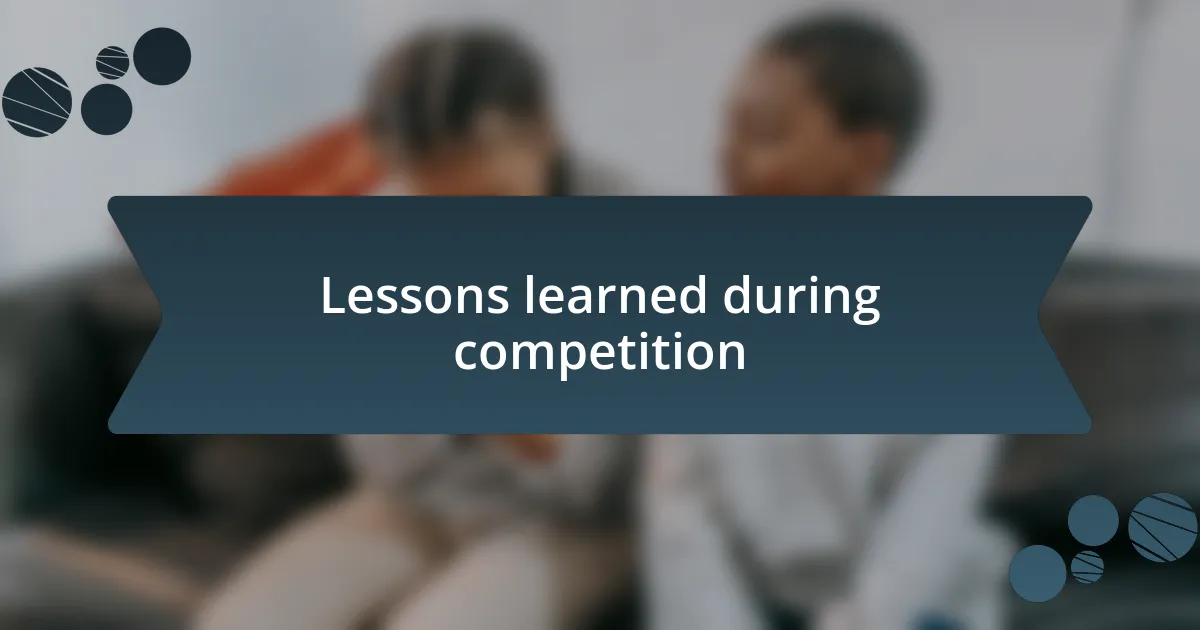
Lessons learned during competition
During my first tournament, I quickly learned that emotions can run high and impact performance significantly. I remember standing on the sidelines, nerves bubbling in my stomach as I watched fellow competitors. Some handled pressure gracefully, while others let panic take the reins. This taught me that managing my emotions was crucial—developing a routine to calm myself before each match became a key strategy. I found that taking a deep breath and refocusing my mind helped me regain control and perform at my best.
Reflecting on how competition affected my mindset, I recognized a few invaluable lessons:
- Emotional Regulation: I learned to embrace my nerves instead of fighting them. Accepting that feeling anxious was normal transformed my approach to each match.
- Focus on the Present: While it was tempting to dwell on past mistakes or worry about future outcomes, staying present became my mantra. This shift helped sharpen my concentration.
- Learning from Failure: Some of my matches didn’t end well, but I treated each loss as an opportunity. Analyzing what went wrong allowed me to improve for future competitions, fostering resilience.
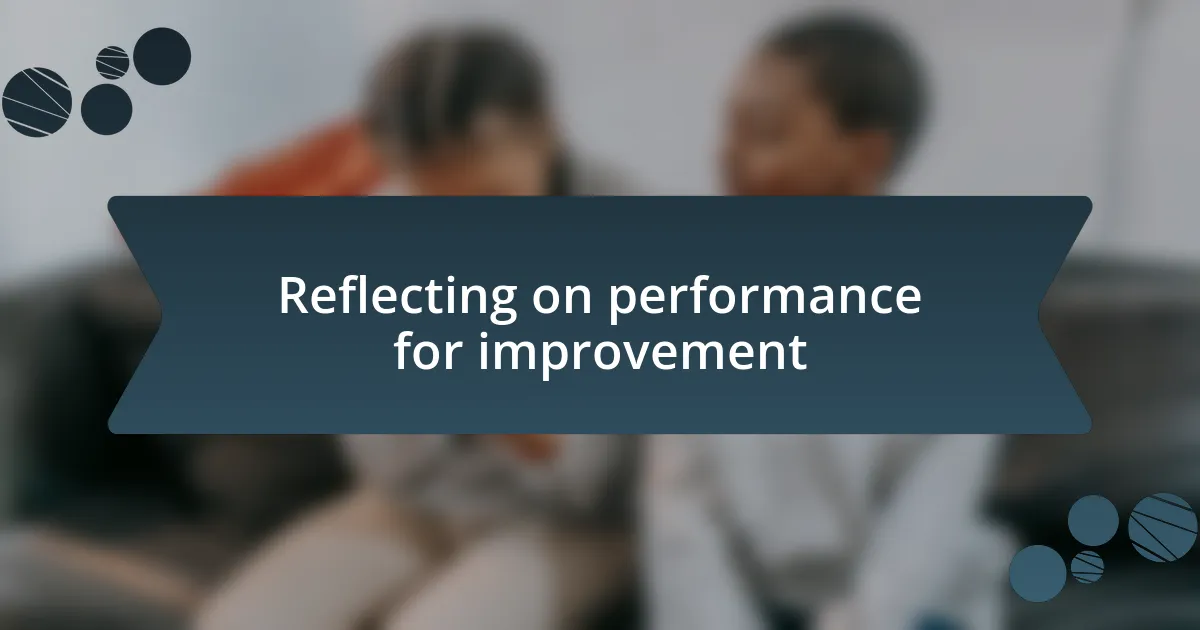
Reflecting on performance for improvement
Reflecting on my performance after the tournament was a game-changer for my growth. I remember sitting down with a notebook, replaying each match in my head. What worked? What didn’t? This process helped me pinpoint specific moments where I could have performed better. By asking myself these questions, I gained valuable insights into my strategy and overall approach.
One particular match stands out in my memory. I got so caught up in trying to impress the crowd that I forgot my game plan, leading to a quick downfall. This realization hit hard, but it prompted me to focus on understanding my own motivations better. I now consider what drives my performance and make a conscious effort to stay aligned with my true objectives rather than external pressures.
The feedback I received from coaches and peers was instrumental as well. I realized how important it is to seek constructive criticism. Listening to others’ perspectives helped me see my blind spots. It’s a reminder that improvement is a collective effort; we often can’t see our weaknesses without the eyes of others. This reflection process not only sharpened my skills but also deepened my understanding of what it truly means to grow as a competitor.
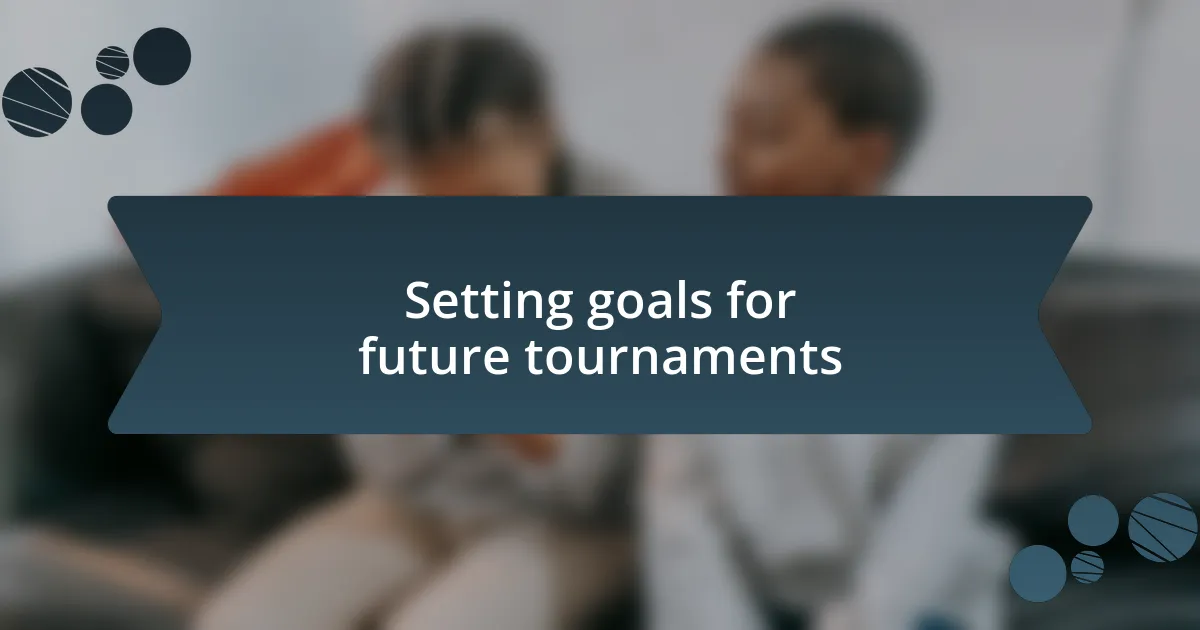
Setting goals for future tournaments
Setting goals for future tournaments is essential for continuous improvement. After my first tournament, I realized that simply participating wasn’t enough; I needed to define what success looked like for me. I’d often ask myself, “What am I striving for?” and I’ve learned to break my goals into tangible, achievable steps. For example, focusing on mastering a particular technique or improving my mental resilience can provide a clearer pathway to success.
Another important lesson I’ve taken from my experience is the need to set both short-term and long-term goals. In my case, after reflecting on my last performance, I decided that my short-term target would be to increase my stamina in the next few months. This was crucial because I noticed fatigue impacting my game. At the same time, my long-term aspiration is to qualify for a higher-level tournament, which keeps me motivated day in and day out.
Each goal I set becomes a part of my training regimen, aligning my daily practices with my aspirations. When I look at my progress, I actually feel excited about the new challenges ahead. It raises the question: how can we turn our setbacks into motivating forces? By approaching my goals with a positive mindset, I transform past disappointments into stepping stones for future success, making my journey as a competitor both fulfilling and enlightening.

